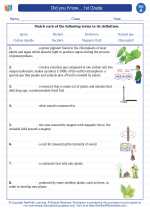Chromosomes
Chromosomes are thread-like structures located in the nucleus of animal and plant cells. They are made of protein and a single molecule of deoxyribonucleic acid (DNA). DNA contains the genetic instructions that make each living organism unique.
Structure of Chromosomes
Each chromosome is made up of DNA tightly coiled many times around proteins called histones that support its structure. The DNA and proteins are condensed to form chromatin, which further condenses to form a visible chromosome during cell division.
Function of Chromosomes
The main function of chromosomes is to carry the genetic information needed for the growth, development, and functioning of an organism. This genetic information is passed from one generation to the next.
Study Guide
- What are chromosomes made of?
- Describe the structure of chromosomes.
- What is the function of chromosomes?
Understanding chromosomes is crucial to comprehend the basis of heredity, genetic disorders, and the processes of cell division and reproduction.
.◂Science Worksheets and Study Guides First Grade. Did you Know... 1st Grade
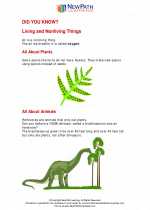
 Worksheet/Answer key
Worksheet/Answer key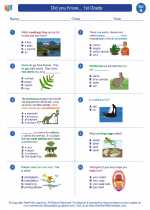
 Worksheet/Answer key
Worksheet/Answer key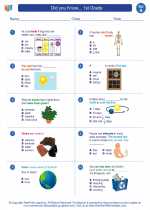
 Worksheet/Answer key
Worksheet/Answer key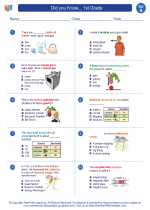
 Vocabulary/Answer key
Vocabulary/Answer key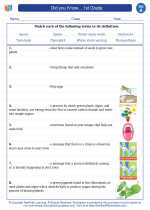
 Vocabulary/Answer key
Vocabulary/Answer key